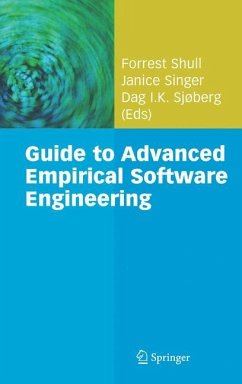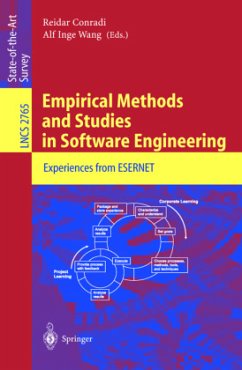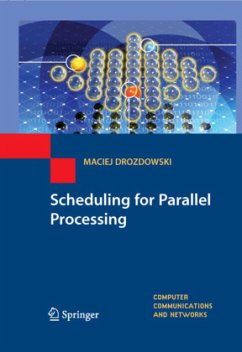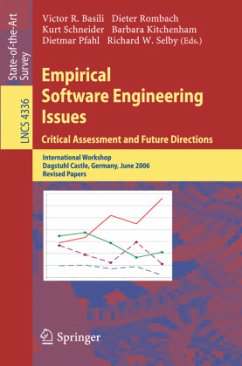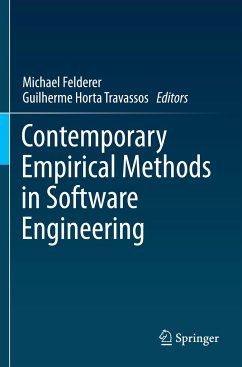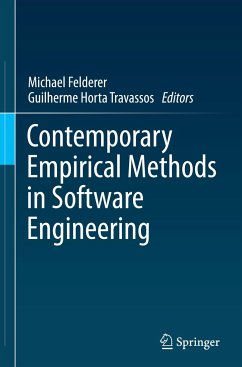
Guide to Advanced Empirical Software Engineering
Versandkostenfrei!
Versandfertig in über 4 Wochen
176,99 €
inkl. MwSt.

PAYBACK Punkte
88 °P sammeln!
Empirical studies have become an important part of software engineering research and practice. Ten years ago, it was rare to see a conference or journal article about a software development tool or process that had empirical data to back up the claims. Today, in contrast, it is becoming more and more common that software engineering conferences and journals are not only publishing, but eliciting, articles that describe a study or evaluation. Moreover, a very successful conference (International Symposium on Empirical Software Engineering and Measurement), journal (Empirical Software Engineerin...
Empirical studies have become an important part of software engineering research and practice. Ten years ago, it was rare to see a conference or journal article about a software development tool or process that had empirical data to back up the claims. Today, in contrast, it is becoming more and more common that software engineering conferences and journals are not only publishing, but eliciting, articles that describe a study or evaluation. Moreover, a very successful conference (International Symposium on Empirical Software Engineering and Measurement), journal (Empirical Software Engineering), and organization (International Software Engineering Research Network) have all evolved in the last 10 years that focus solely on this area. As a further illustration of the growth of empirical software engineering, a search in the articles of 10 software engineering journals showed that the proportion of articles that used the term "empirical software engineering" d- bled from about 6% in 1997 to about 12% in 2006. While empirical software engineering has seen such substantial growth, there is not yet a reference book that describes advanced techniques for running studies and their application. This book aims to fill that gap. The chapters are written by some of the top international empirical software engineering researchers and focus on the practical knowledge necessary for conducting, reporting, and using empirical methods in software engineering. The book is intended to serve as a standard reference.





